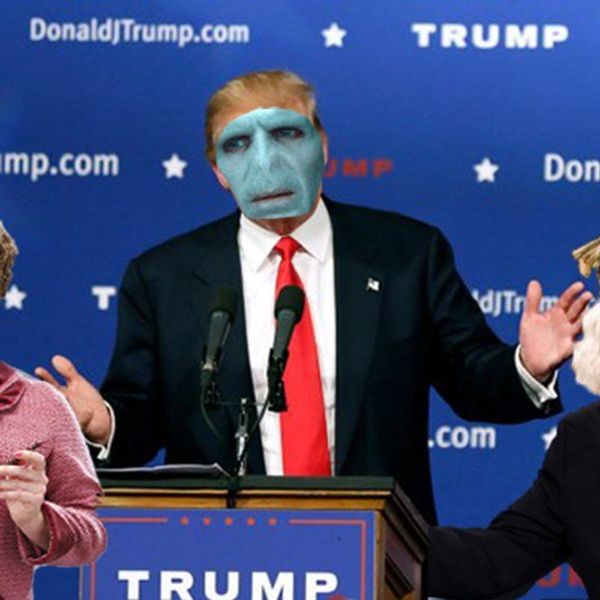Throughout the history of the United States there has been two major contradictions: the state apparatuses formed off of the model of European nations, and the federal structure modeled off of the native tribes of the Iroquois Confederacy. While these two systems have evolved side-by-side with one another; there are differences that need to be highlighted. There is a clear connection between the atrocities committed by the European structures that caused the genocide of the native population and the enslavement and forced migration of African populations towards the end goal of profiting economically. There is also a clear connection with the ideals embodied in the federal structure and act of unity designed to integrate and concentrate a multi ethnic, multi cultural structure towards the aim of a transcended system designed to bond human species.
When we look in closer details to this colonial settlers heritage, it has a lot in line with Anglo Saxon superiority, which extended into Anglo American superiority, which we consider today as "white supremacy". This perspective of racial supremacy and ethnic identity has conflicted with the basic pretexts of the model of native designed federalism by sheer fact that the atrocities of mass genocide of the native population and enslavement of Africans populations. Defense and justification was rationalized by the ideas of European style nation-states which became a main aspect of the colonial-settler structure that has built the United States's States and defended the corresponding structure of capitalism it supported. This structure of capitalism, white supremacy, and nation-states serve to culminate into the colonial-settlers apparatus that ultimately embodies some of the worst aspects of imperialism and other forms of exploitation. The colonial wars with native peoples, the manifest destiny against the rest of the native population in the continent as well as the conquest of Mexico, the overseas expansion that occurred during the Spanish-American war, and the modern imperialism/neocolonialism via corporations and global military domination of the post World War II "Pax Americana"; just to name a few examples of the colonial-settlers atrocities. As Martin Luther King Jr once said, this is the mentality of the "triple evils of racism, economic exploitation, and militarism"; which was another way of describing what has been embodied in the colonial-settler structure, and is something dating back to the origins of the United States. But even with these atrocities, the origin of the United States is shared by its federalism.
Federalism was the basis that formed the United States in its beginning via the Articles of Confederation, and later the adoption of the Constitution and the formation of the federal government. While the colonial-settler structures blended with this, Federalism was a creation of native peoples in America. The idea of federalism was rooted in the collective native tribes of America who formed a confederation most know today as the Iroquois Confederacy. It was a coalition of tribes that came together to form a collective that worked in the interests of the group as a whole rather than any one individual tribe. These basic pretexts of political organization, coupled with native economic values of resource conservation and egalitarian distribution towards members of the collective tribe; formatted an institutional system that strikingly contrasts the individualism of European nation-states and their economic structure of capitalism with its privatization and self-serving incentives. This manner of transcended organization beyond any one particular tribe structure allowed for a system of unity that could be seen as a proto-form of internationalism, given theoretically the tribes welcomed all other tribes. The development of this international perspective likely was influenced by the interconnected trade network systems that intertwined the Americas in multiple structures of trade and commerce. It has been said that the Iroquois Confederacy developed the concept of a peace belt, a belt used to signify members of the confederation and a sign of friendship to the tribes connected in the vast North American and Pan-American trade networks. One could compare this to a proto form of universal citizenship/international passport. It is worth noting that this internationalist mentality has corresponded with the US federal structure in its motto E Pluribus Unum.
In the end, the atrocities of the European nation-states and its corresponding loyalty to capitalism has all but destroyed the native Federation and its corresponding economic system and mentality of international unity of the human species. The colonial-settler structure of the United States continues to wage a campaign of imperialism as a means of expanding the economic capacity of its capitalist structure via exploitation internally of the populace within its borders!and colonial territorial apparatuses; as well as protruding externally with an expanse of militarism on a global scale as a way of consolidating economic domination and exploitation. The loss of the memory of the history of federalism, the native mentality of egalitarian internationalism, and other tragedies inflicted by the cruelties of the colonial-settler imperial occupation derived from European systems of government do not hold unilateral hegemony over the course and path of the United States federal government. While the two corresponding structures have codeveloped, the inherent nature of the colonial-settler system is not one that is unalterable or invulnerable.
The basic pretexts outlined in early draft of the Articles of Confederation, such as the model written by Thomas Paine, outlined a federal government that instituted universal citizenship, voting rights for all, abolish of slavery, economic protection and egalitarian distributive methods, amongst many other attributes lost to placate the colonial-settler heritage. Entire wars have been fought to curtail this colonial-settler imperialism, and in the end the federal Union has repelled and advanced, even if slower than desired. The momentum of history will approach a point in which the colonial-settlers structure collapses internally and externally, just as every imperial power has; but with the legacy of the native union embodied in American federalism, the potential for a rebirth and rejuvenation of that lost perspective is possible. And when that perspective is revived and re-instituted, the United States can finally live up to its motto: Out of Many, One.



















